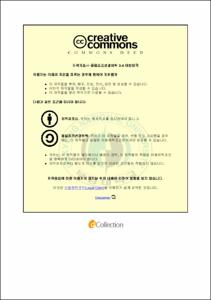한·영 혼용 스토리텔링을 활용한 영어 학습이 초등 영어 어휘 능력 향상에 미치는 효과 연구
- Alternative Title
- An Analysis on the Effect of Korean·English Storytelling on the Development of Vocabulary Ability of Elementary School Students
- Abstract
- The objective of this study is to analyze of the effect of storytelling on the development of vocabulary ability of elementary school students. This study focused on the effects on the students’ cognitive domain and affective domain, such as interest and satisfaction in learning vocabulary. Research questions on this topic of research are as follows: First, Is it possible to teach English by using storytelling to meet the learners’ needs? Second, what effect does storytelling have when the story is written in mixed Korean and English? Third, what effect does concentrated teaching via storytelling have on a elementary aged child’s vocabulary ability and persistence of memory, which is tested in this study through a short English Camp, compared to learning through storytelling within a regular public school format. The experimental instruction was given to 40, third to fifth grade students in elementary school over two weeks covering 40 hours and nine chapters. In order to examine the effects of the experiment on the students’ change in both cognitive domain and affective domain, three types of tests and two types of questionnaires were given and administered. The tests covered the basic and applied vocabulary ability respectively. The results of this study are summarized as follows: First, there were positive results in the students’ affective domains. According to the post questionnaires, all students showed increased interest and self-confidence in learning vocabulary with storytelling.
Second, over ninety percent of the students responded that they were satisfied with learning vocabulary using storytelling is written Korean-English. According to the pre questionnaires, they showed no interest in study through storytelling. Moreover, all students’ basic vocabulary ability improved enough to show the significant value in mean scores. In particular, storytelling has more positive effects on the high-level students than the low-level students, exemplified by the basic vocabulary ability test. However, there was no significant difference in applied vocabulary ability.
Third, the results showed that the students were satisfied with learning storytelling during the English camp. The results of the delayed-test show the scores are a little bit lower than the post-test, but they show a greater improvement than the pre-test.
To conclude, the findings show that using Korean·English storytelling English learners' literature can be a powerful learning method to enhance students' vocabulary ability. The results also show that learning vocabulary in this way has a positive effect on students' affective domain for learning English vocabulary. Further study of English Learners' Literature should be more widely developed by educational researchers and teachers to be efficiently applied to English Education.
- Issued Date
- 2014
- Awarded Date
- 2014. 8
- Type
- Dissertation
- Publisher
- 부경대학교
- Affiliation
- 교육대학원
- Department
- 교육대학원 영어교육전공
- Advisor
- 박매란
- Table Of Contents
- Ⅰ. 서 론
1.1 연구의 필요성 및 목적
1.2 연구 과제
1.3 용어 정의
1.4 연구의 제한점
Ⅱ. 이론적 배경
2.1 초등 영어 어휘 지도
2.2 스토리텔링 적용 수업
2.3 초등 영어 캠프
2.4 선행 연구
Ⅲ. 연구 방법
3.1 연구 대상
3.2 연구 도구
3.3 연구 기간 및 절차
3.4 실험 수업 설계 및 실제
3.5 자료 분석
Ⅳ. 결과 및 해석
4.1 정의적 영역 설문지 결과 및 논의
4.2 어휘 능력 평가 결과 및 논의
Ⅴ. 결론 및 제언
5.1 결론
5.2 제언
참고문헌
부록
- Degree
- Master
- Files in This Item:
-
-
Download
 한·영 혼용 스토리텔링을 활용한 영어 학습이 초등 영어 어휘 능력 향상에 미치는 효과 연구.pdf
기타 데이터 / 1.02 MB / Adobe PDF
한·영 혼용 스토리텔링을 활용한 영어 학습이 초등 영어 어휘 능력 향상에 미치는 효과 연구.pdf
기타 데이터 / 1.02 MB / Adobe PDF
-
Items in Repository are protected by copyright, with all rights reserved, unless otherwise indicated.